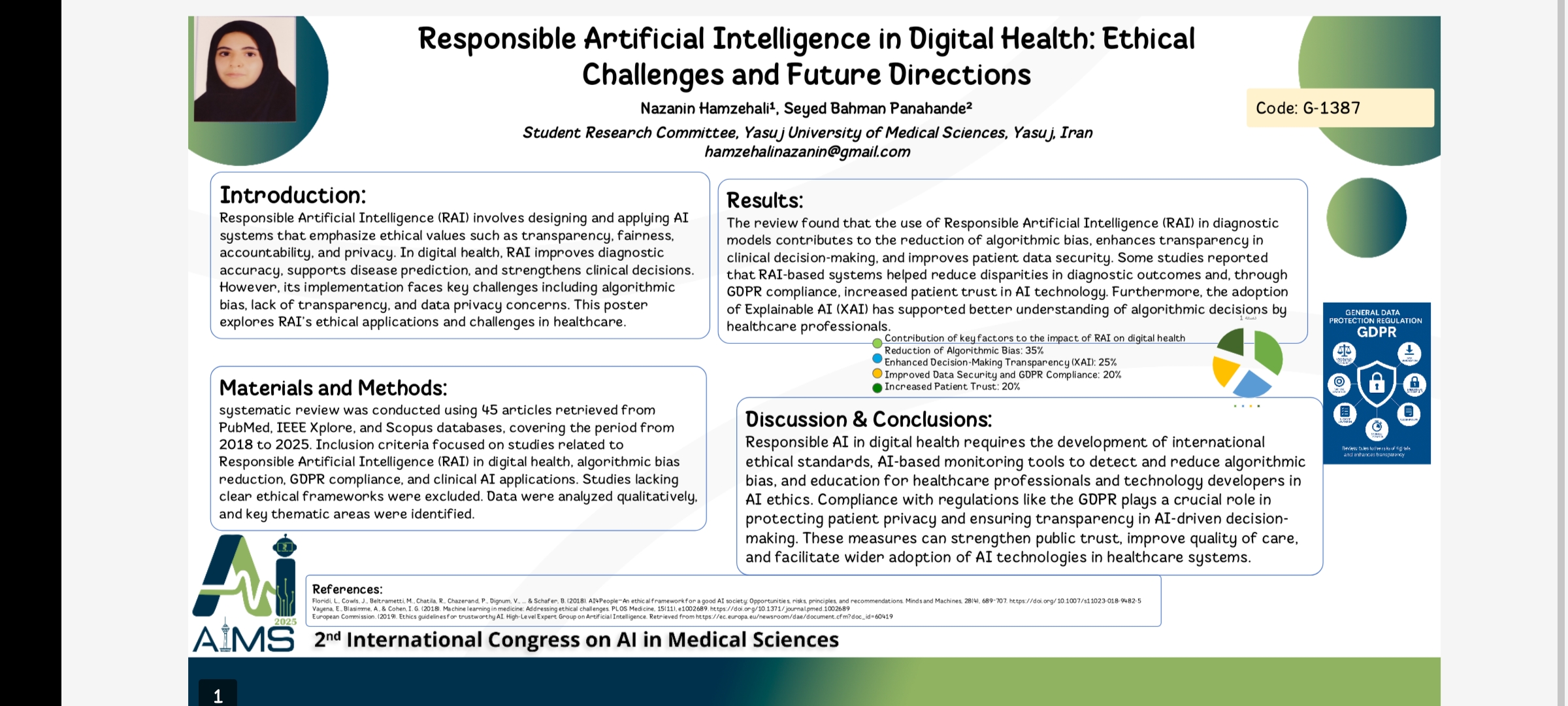Responsible Artificial Intelligence in digital health: Ethical Challenges and Future Directions
Code: G-1387
Authors: Nazanin Hamzehali * ℗, Seyed Bahman Panahande
Schedule: Not Scheduled!
Tag: Health Policy, Law & Management in AI
Download: Download Poster
Abstract:
Abstract
Background and Aims : Artificial Intelligence (AI) holds significant potential for transforming healthcare by enhancing diagnostic accuracy , improving patient outcomes, and increasing operational efficiency. However, the integration of AI into digital health raises ethical concerns, particularly in the areas of data privacy, algorithmic bias, and accountability. The aim of this study is to examine the concept of Responsible Artificial Intelligence (RAI) in healthcare, focusing on its applications, challenges, and ethical considerations. Additionally, it highlights the importance of explainability and patient trust in Artificial Intelligence-driven medical decisions. Method : A review was conducted on articles from the PubMed , IEEE Xplore , and Google Schalor databases (2018-2024) . Topics such as fairness in algorithms , General Data Protecting Regulation (GDPR) compliance , and bias reduction methods were examined . Results : The results show that the use of Responsible Artificial Intelligence in diagnostic models has significantly reduced racial inequality and improved data security . Additionally, systems that are General Data Protecting Regulation-compliant have enhanced patient trust . Conclusion : The establishment of international ethical standards, the development of Artificial Intelligence-based monitoring tools, and the education of healthcare professionals in Artificial Intelligence ethics are essential for the responsible deployment of this technology.
Keywords
Responsible AI, digital ethics, GDPR compliance
